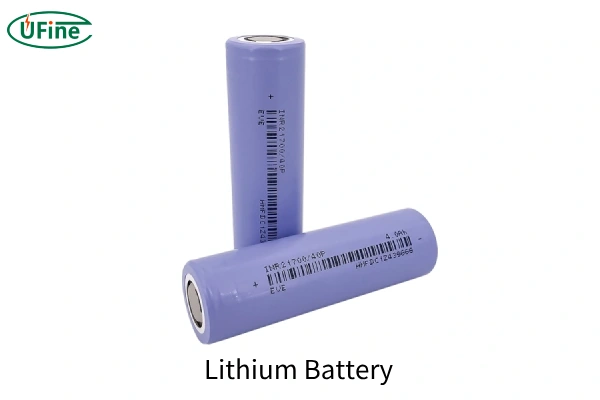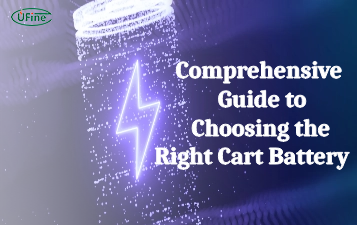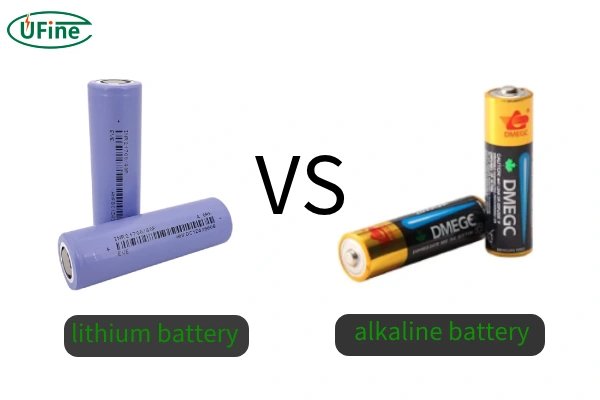Part 1. Lithium battery overview

Lithium batteries utilize lithium ions to move between the battery’s positive and negative electrodes during charging and discharging cycles.
One of the key advantages of lithium batteries is their ability to deliver a high voltage and maintain it throughout the discharge cycle, providing a stable power supply. They have a relatively low self-discharge rate, meaning they can retain their charge for extended periods when not used.
So, lithium-ion batteries (Li-ion) are prevalent in smartphones, laptops, and electric vehicles, offering longer runtime and faster charging than traditional battery chemistries. Lithium polymer batteries (LiPo) feature a flexible, flat design and are commonly used in wearable devices and drones.
Part 2. Alkaline battery overview
Alkaline batteries are widely used for powering various electronic devices and appliances due to their affordability, availability, and reliability. They utilize an alkaline electrolyte (typically potassium hydroxide) and manganese dioxide as the cathode to generate electrical energy through a chemical reaction. Alkaline batteries are known for their long shelf life and relatively stable voltage output. They are suitable for devices with low to moderate power requirements, such as remote controls, flashlights, and toys.
They offer a higher energy density compared to traditional zinc-carbon batteries, providing longer runtime and better performance. However, alkaline batteries are typically non-rechargeable and must be disposed of properly once depleted.
Part 3. Complete Comparison: lithium battery vs alkaline battery
1. Rechargeable
- Alkaline Batteries: Generally non-rechargeable; disposable after use.
- Lithium Batteries: Can be rechargeable or non-rechargeable, depending on the specific chemistry (e.g., lithium-ion batteries are rechargeable, while primary lithium batteries are non-rechargeable).
2. Battery Chemistry
- Alkaline Batteries: Use an alkaline electrolyte and manganese dioxide cathode.
- Lithium Batteries: Utilize lithium-based compounds for both the anode and cathode, with various chemistries including lithium-ion, lithium polymer, and primary lithium.
3. Battery Type
- Alkaline Batteries: Disposable batteries commonly available in standard sizes like AA, AAA, C, and D.
- Lithium Batteries: Lithium batteries come in both disposable and rechargeable options. Rechargeable lithium batteries include lithium-ion (Li-ion) and lithium-polymer (LiPo) batteries.
4. Battery Voltage
- Alkaline Batteries Typically provide 1.5 volts per cell.
- Lithium Batteries: They can vary in voltage depending on the specific chemistry and configuration but commonly provide higher voltages than alkaline batteries (e.g., lithium-ion batteries typically provide 3.7 volts per cell).
5. Battery Capacity
- Alkaline Batteries: Offer moderate energy density and capacity, suitable for low to moderate power devices.
- Lithium Batteries Tend to have higher energy density and capacity compared to alkaline batteries, providing longer runtime and better performance, especially in high-drain applications.
6. Price
- Alkaline Batteries are generally more affordable upfront. Still, their disposable nature means that long-term costs may be higher due to frequent replacements.
- Lithium Batteries: Typically more expensive upfront, but rechargeable lithium batteries can offer cost savings over time by reducing the need for frequent replacements.
7. Application
- Alkaline Batteries: Widely used in various consumer electronics and appliances with low to moderate power requirements, such as remote controls, flashlights, toys, and clocks.
- Lithium Batteries: Commonly employed in high-performance devices and applications that demand long runtime, high power output, and reliability, including digital cameras, medical devices, portable electronics, and electric vehicles.
8. Battery Cycle Life
- Alkaline Batteries: Alkaline batteries are generally considered single-use or disposable batteries, meaning they are not designed to be recharged. As a result, they do not have a defined cycle life. Once depleted, alkaline batteries should be properly disposed of and replaced with new batteries.
- Lithium Batteries: Lithium batteries can be rechargeable or non-rechargeable, depending on the specific chemistry. Rechargeable lithium-ion batteries, for example, have a finite cycle life, typically rated for hundreds to thousands of charge-discharge cycles, depending on factors such as depth of discharge, charging conditions, and battery management. Primary lithium batteries, on the other hand, are non-rechargeable and do not have a defined cycle life.
9. Battery shelf life
- Alkaline Batteries Have a relatively long shelf life, typically retaining around 80-90% of their capacity for several years when stored properly. However, their runtime or active lifespan during use depends on the device’s power consumption and discharge characteristics.
- Lithium Batteries: Generally offer an extended shelf life compared to alkaline batteries, with minimal self-discharge rates. They can retain their charge for several years, making them suitable for long-term storage and backup power applications. In terms of active lifespan during use, lithium batteries often outperform alkaline batteries, especially in high-drain devices where they can provide consistent power output for longer durations.
Part 4. Which is Better, Lithium or Alkaline Batteries?
Above, we compare the voltage and capacity of lithium batteries and alkaline batteries. Battery chemistries, battery types, applications, prices, etc. are compared. So which battery should I buy?
Here is a brief comparison of lithium and alkaline batteries:
Advantages of Lithium Batteries:
- Higher energy density: Lithium batteries have a higher energy density, meaning they can store more energy in a smaller and lighter package.
- Longer shelf life: Lithium batteries have a lower self-discharge rate, allowing them to retain their charge for longer periods when not in use.
- High voltage output: Lithium batteries provide a stable and higher voltage output throughout their discharge cycle, maintaining consistent performance.
- Rechargeability: Many lithium batteries, such as lithium-ion (Li-ion) and lithium-polymer (LiPo) batteries, are rechargeable and can be reused multiple times.
Advantages of Alkaline Batteries:
1. Affordability: Alkaline batteries are generally more cost-effective and widely available at lower costs.
2. Compatibility: Alkaline batteries come in standard sizes and are compatible with various electronic devices.
3. Wide temperature range: Alkaline batteries perform well across a broad temperature range, making them suitable for various environments.
4. Safety: Alkaline batteries are generally considered safe and have a lower risk of thermal runaway or overheating compared to some lithium batteries.
Part 5. Final thoughts
Overall, determining which battery is “better” depends on the specific requirements of the application. Lithium batteries are often preferred for high-performance devices, portable electronics, and applications that require lightweight and long-lasting power. Alkaline batteries are a more economical choice for low-drain devices in situations where rechargeability is unnecessary.
It’s important to consider factors such as energy density, voltage requirements, budget, and the application’s specific needs to make an informed decision. Both lithium batteries and alkaline batteries have their strengths and weaknesses, and the “better” battery will vary depending on the context and intended use.
Part 6. FAQs
-
Can I recharge lithium batteries like I can with alkaline batteries?
Lithium-ion batteries are rechargeable, while alkaline batteries are non-rechargeable and should not be recharged. -
Are lithium batteries safer than alkaline batteries?
While both types of batteries have safety features, lithium batteries have a higher risk of thermal runaway if mishandled, potentially leading to fire or explosion. -
Which type of battery lasts longer in storage, lithium or alkaline?
Lithium batteries generally have a longer shelf life and lower self-discharge rate than alkaline batteries, making them better suited for long-term storage. -
Are lithium batteries better for high-drain devices than alkaline batteries?
Lithium batteries typically perform better in high-drain devices due to their higher energy density and voltage stability. -
Can I replace alkaline batteries with lithium batteries in my device?
In most cases, yes. However, check the voltage and size compatibility of the batteries with your device. -
Are alkaline batteries more environmentally friendly than lithium batteries?
Neither type of battery is entirely environmentally friendly, but alkaline batteries contain heavy metals. They can pose environmental risks if not disposed of properly. -
Why are lithium batteries more expensive than alkaline batteries?
The higher cost of lithium batteries is due to factors such as their superior performance, energy density, and the manufacturing processes involved. -
Can I use rechargeable alkaline batteries instead of lithium-ion batteries?
While rechargeable alkaline batteries exist, they generally have lower performance and cycle life than lithium-ion batteries.
Related Tags:
More Articles

Comprehensive Guide to Choosing the Right Cart Battery
Choosing the right cart battery ensures optimal performance and longevity. This guide covers cart battery types and helps you make an informed choice.
The Ultimate Guide to 18650 Button Top Battery
18650 button top batteries are popular for their high energy density and reliability. This guide covers their key features, usage, and maintenance tips.
The Power of Slim: Unveiling the Potential of Flat Lithium Ion Battery
Flat lithium-ion batteries power devices from phones to vehicles. This article explores their design, benefits, types, applications, charging, and safety.
The Comprehensive Guide to Battery Balancing and Battery Balancer
Battery balancing and balancers optimize performance, longevity, and safety. This guide covers techniques and tips for choosing the right balancer.
10 Key Facts About Drone Battery for 2024
Uncover crucial insights with "10 Key Facts About Drone Battery for 2024." Learn the latest trends and essential details on drone batteries.





